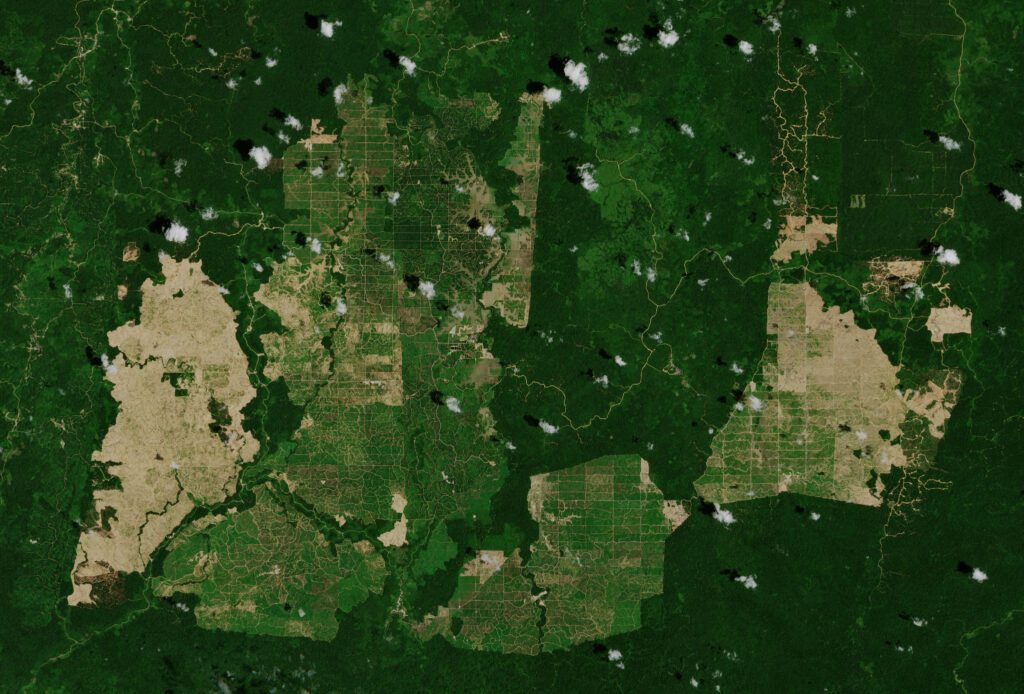
Flickr)


Palm oil is found in 50% of all consumer goods. And it’s killing the environment.
By Reynard Loki, Independent Media Institute
7 min read
In May, the village Ijaw-Gbene in southern Nigeria was burnt to the ground, leaving more than 80 people without homes. According to a report by Chief Ajele Sunday, the spokesman of the people of the Okomu Kingdom, witnesses identified the perpetrators as members of the security force employed by the Okomu Oil Palm Plantation supported by soldiers in the Nigerian army. It was the fourth village in the region to experience such an attack.
Joseph Miyani, one of the victims of the May attack, said that the company’s security forces and government soldiers fired weapons “before setting our houses ablaze.” He reported that villagers fled into the bush to escape the violence, even jumping into a nearby river to protect themselves. “Since that day my life has been miserable,” Miyani said. “I don’t know where to start from. We are now taking shelter in a church building.”
Okomu is a subsidiary of Société Financière des Caoutchoucs (SOCFIN)—an agribusiness corporation that operates palm oil and rubber plantations across 10 Asian and African countries. “In Cameroon, Liberia, Sierra Leone, Ivory Coast and Cambodia, local people complain about ruthless methods wherever [SOCFIN’s] subsidiaries are active,” reports Rainforest Rescue, a nonprofit environmental organization based in Hamburg, Germany. “Repeatedly, after losing their lands to the company, local communities in Africa and Asia have been subject to violence, intimidation and distress as a result of the palm oil and rubber exploitation,” writesFrédéric Mousseau, policy director at the Oakland Institute, a think tank based in Oakland, California, that focuses on social, economic and environmental issues.
Though Okomu denied their participation in the attack, violence and destruction are increasingly commonplace throughout the global palm oil industry. Just last month, the Associated Press (AP) reported on incidents of sexual abuse, rape, human trafficking, child labor and slavery. “Almost every plantation has problems related to labor,” said Hotler Parsaoran of the Sawit Watch, an Indonesian nonprofit that has investigated abuses in the palm oil sector. “But the conditions of female workers are far worse than men.”
In addition to its role in human rights abuses, the palm oil industry is also a primary driver of deforestation, which not only exacerbates climate change by releasing into the atmosphere carbon that was previously safely stored in trees cut down to make room for plantations, but threatens wildlife and biodiversity. Parsaoran told the AP that ending these abuses is the responsibility of palm oil producers, multinational buyers, governments and the banks that finance plantations. But there is another powerful group that supports this entire industry: consumers. As Martin Hickman reports for the Independent, unwitting consumers “may be contributing to the devastation of the wildlife-rich forests of Indonesia and Malaysia, where orangutans and other species face extinction as their habitat disappears.”
But WWF, a non-governmental environmental organization based in Switzerland, suggests that removing products with palm oil from our shopping lists isn’t necessarily the best course of action for concerned consumers. “Avoiding palm oil could have worse effects because it might take support away from companies that are trying hard to improve the situation,” the group says. “This could encourage companies to use other products that may have even more impact on the environment. Palm oil is by far the most efficient vegetable oil to grow as it takes less land to produce than other vegetable oils. Palm oil can be produced in a responsible manner that respects the environment and the communities where it is commonly grown.”
The group suggests that consumers should look for the RSPO label “to ensure you purchase products made with certified sustainable palm oil.” The certification was established by the Roundtable on Sustainable Palm Oil, which was formed in 2004 to promote the development of sustainable palm oil and is supported by 99 countries. However, the RSPO has been intensely criticized by environmentalists for the very thing it was supposed to prevent: rampant deforestation for palm oil production. In July, a study conducted by researchers at Tomsk State University in Russia and the Konrad Lorenz Institute for Evolution and Cognition Research in Austria showed satellite images revealing that palm oil production that received sustainable certification actually caused deforestation in Sumatra and Borneo that has threatened the habitats of several endangered mammals over the past three decades, including elephants, rhinos, tigers and orangutans.
“We suggest that the phrase ‘sustainable palm oil’ must no longer be used to greenwash this tropical product’s reputation, because it cannot certify that the production of palm oil comes from a non-recent degradation of tropical forests and endangered species habitats,” the study’s authors write. “In fact, we discovered that the current certified palm oil demand is almost fully supplied by those bases and concessions that, in less than three decades, replaced some of the most diverse tropical forests of the world and habitats of big mammals threatened by extinction.”
“Rapid and relentless deforestation for industrial-scale agriculture, particularly palm oil and timber plantations, leaves orangutans without food and shelter, exposing them to hunters who kill orangutans and capture their babies to sell as pets,” writes Earth | Food | Life contributor Alan Knight, chief executive of International Animal Rescue, an animal rights nonprofit based in England. “The apes are also in danger of coming into conflict with local people as they stray into villages and onto farmland in search of food. Fires started on an annual basis as part of land clearance operations in Indonesia are also responsible for the loss of thousands of acres of rainforest and the lives of hundreds if not thousands of orangutans.”
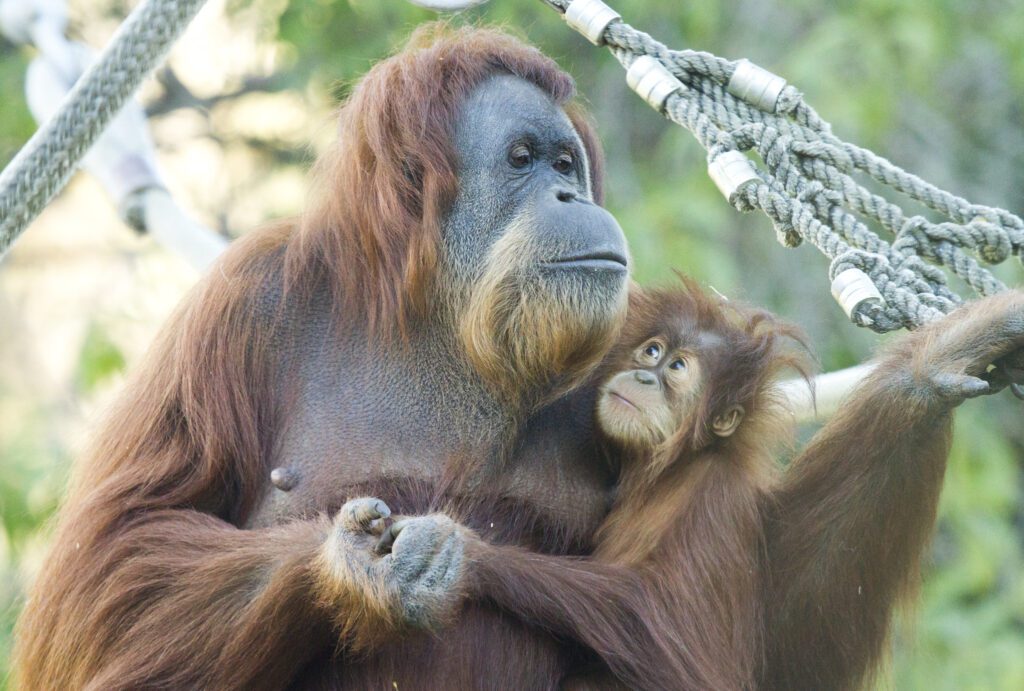
Made from the oil palm plant, palm oil is the world’s most widely traded vegetable oil. It is found in about half of all consumer goods, including common foods like bread, cookies, crackers, doughnuts, peanut butter and breakfast cereal, as well as everyday household products like soap and laundry detergent. Palm oil is also found in a host of cosmetics and beauty products like lipstick, mascara, body lotion, bubble bath and anti-wrinkle creams. The list goes on. Making matters worse for ethical consumers is the fact that ingredient lists rarely say “palm oil,” but rather a specific ingredient or chemical that contains palm oil, like sodium lauryl sulphate, glyceryl stearate, stearic acid and many others.
Boycotting palm oil isn’t the best tactic for ethical consumers. Not only would it be extremely difficult to avoid it altogether due to its ubiquitousness, but other options, like coconut oil, would also have the potential to destroy those very same environments currently plagued by oil palm plantations. Christopher Wille of the Rainforest Alliance told VICE that palm oil is “a bounteous and valuable crop [that is] highly productive compared to other oils, creates jobs and revenues and can be used in an amazing variety of products.” He argues that it’s not the oil palm plant that is the problem, but rather the way it’s grown. He says that ending deforestation, coupled with consumer pressure for “higher sustainable standards” and greater industry transparency about sourcing is the answer. “The hope is that companies will continue making changes to meet market demand. Some lobby for alternative oils, but all farming has a similar impact.”
Consumer pressure works. Earlier this year, the multinational food conglomerate Kellogg’s revised its palm oil policy after more than 780,000 concerned consumers signed an online petition. “If you care about the implications of palm oil,” writes Helen Nianias on VICE, “write emails to companies, ask if manufacturers are committed to zero deforestation. Be that guy. We all need to be that guy.”
- Sign the petition urging Nigerian President Muhammadu Buhari to protect local communities and ecosystems in Nigeria from the abuses of the palm oil industry.
Cause for concern…
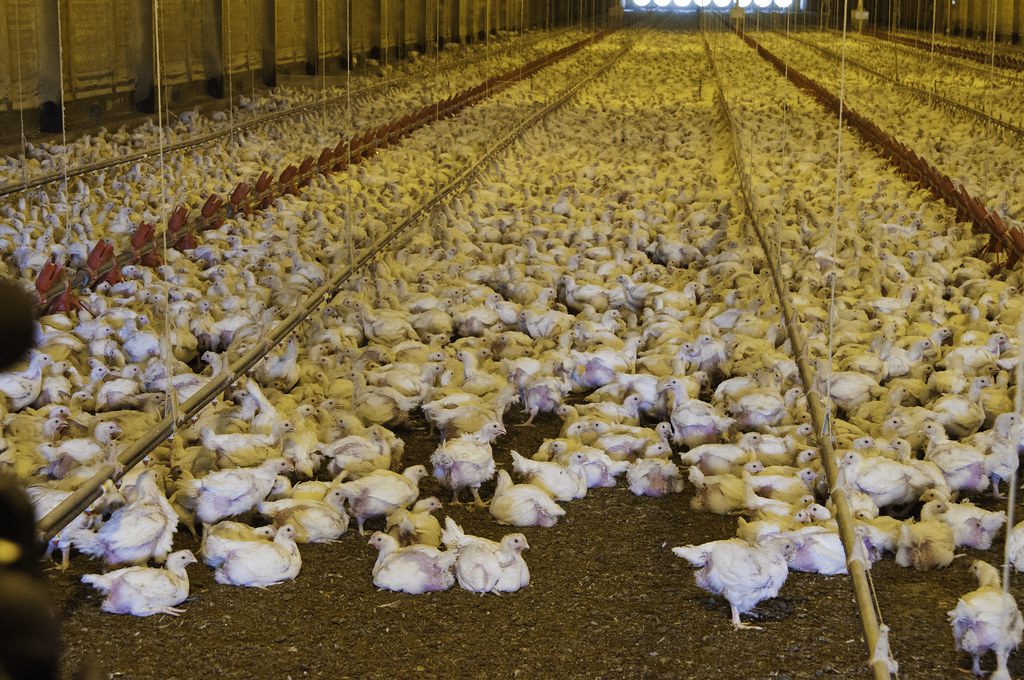
“More than 120 labor, food justice, animal welfare and environmental organizations have banded together to take action against [Tyson Foods],” writes Earth | Food | Life contributor David Coman-Hidy, the president of The Humane League, on Truthout. “Tyson must take immediate action to protect the safety and well-being of its workers, make improvements to support animal welfare and reduce its harsh impact on the environment.
- Tyson exploits consumers just like its animals and the workers who raise them (David Coman-Hidy, Earth | Food | Life via Truthout)
- Biden EPA transition team member helped chemical companies avoid regulation (Reynard Loki, Earth | Food | Life)
- Climate change could create 63 million migrants in South Asia by 2050 (Megan Rowling, Thomson Reuters Foundation)
- Government scientists predicted Trump’s border wall could harm wildlife refuge (Rachel Frazin, The Hill)
- EU court backs ban on animal slaughter without stunning (BBC News)
Round of applause…
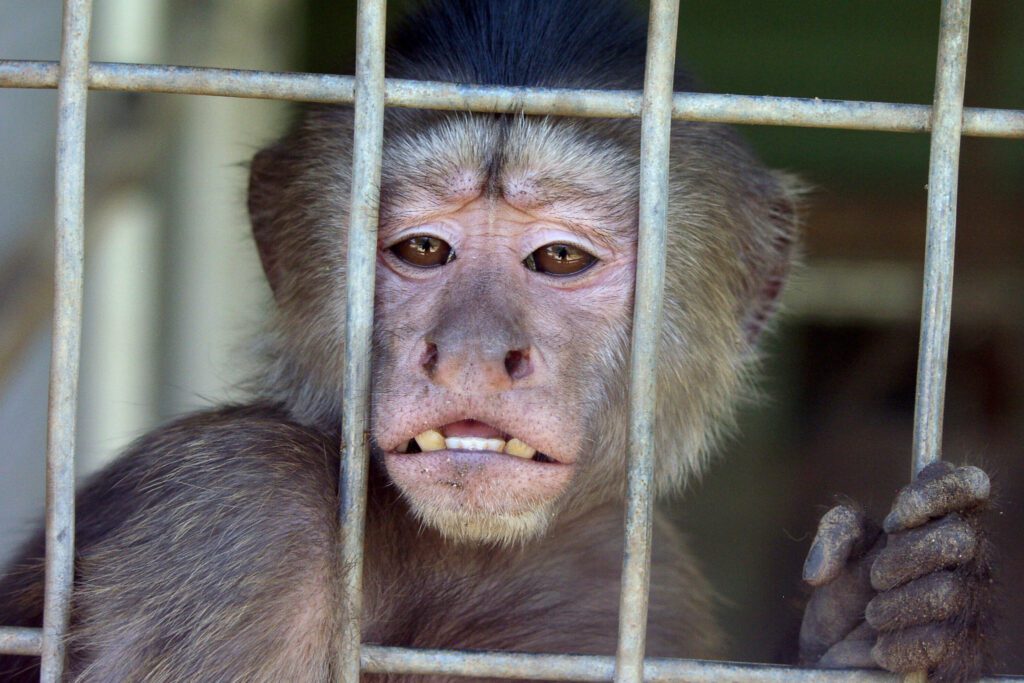
A bipartisan bill in Congress would enable the National Institutes of Health to develop, fund and incentivize non-animal methods of research, and move the United States toward a day when animal testing is no longer necessary, reports Earth | Food | Life editor Reynard Loki.
- The Humane Research and Testing Act would save so many animals from cruel experiments (Reynard Loki, Earth | Food | Life)
- Biden unveils diverse team tasked with ambitious climate agenda (Trevor Hunnicutt, Reuters)
- Climate change legislation included in coronavirus relief deal (Coral Davenport, The New York Times)
- ‘Veganuary’ campaign to combat climate change and future pandemics with vegan diets gains celebrity support (Sam Hall, iNews)
- Vegan seafood is going to be big in 2021 (Yahoo Lifestyle UK)
Parting thought…
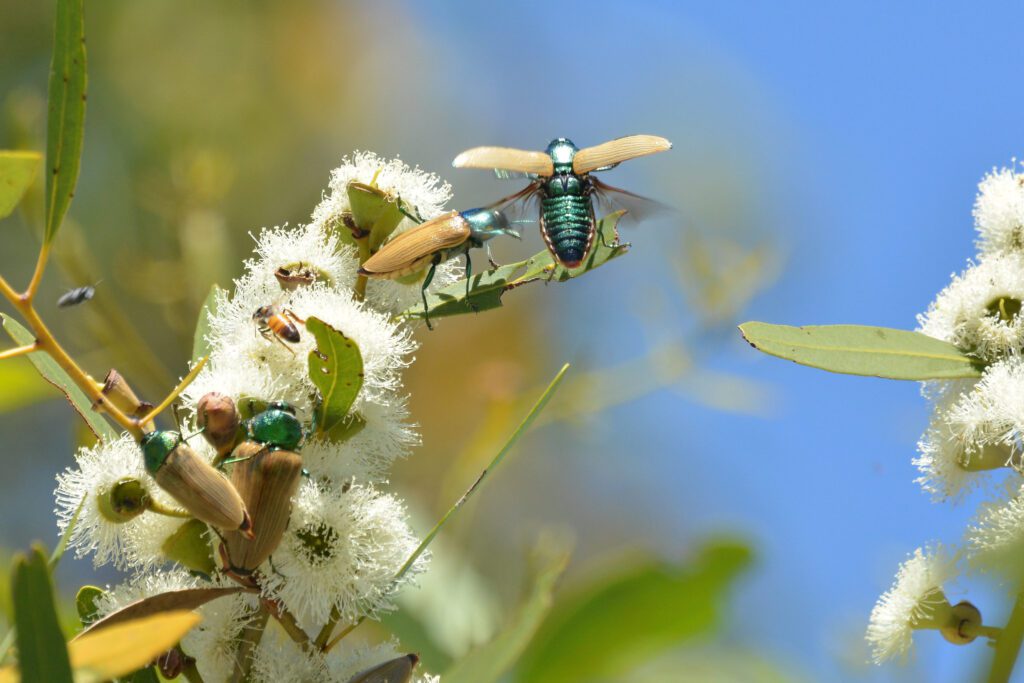
Flickr)
“Nature—the sublime, the harsh, and the beautiful—offers something that the street or gated community or computer game cannot.” —Richard Louv, “Last Child in the Woods” (Algonquin Books, 2008)
Earth | Food | Life (EFL) explores the critical and often interconnected issues facing the climate/environment, food/agriculture and nature/animal rights, and champions action; specifically, how responsible citizens, voters and consumers can help put society on an ethical path of sustainability that respects the rights of all species who call this planet home. EFL emphasizes the idea that everything is connected, so every decision matters.
Click here to support the work of EFL and the Independent Media Institute.
Questions, comments, suggestions, submissions? Contact EFL editor Reynard Loki at [email protected]. Follow EFL on Twitter @EarthFoodLife.